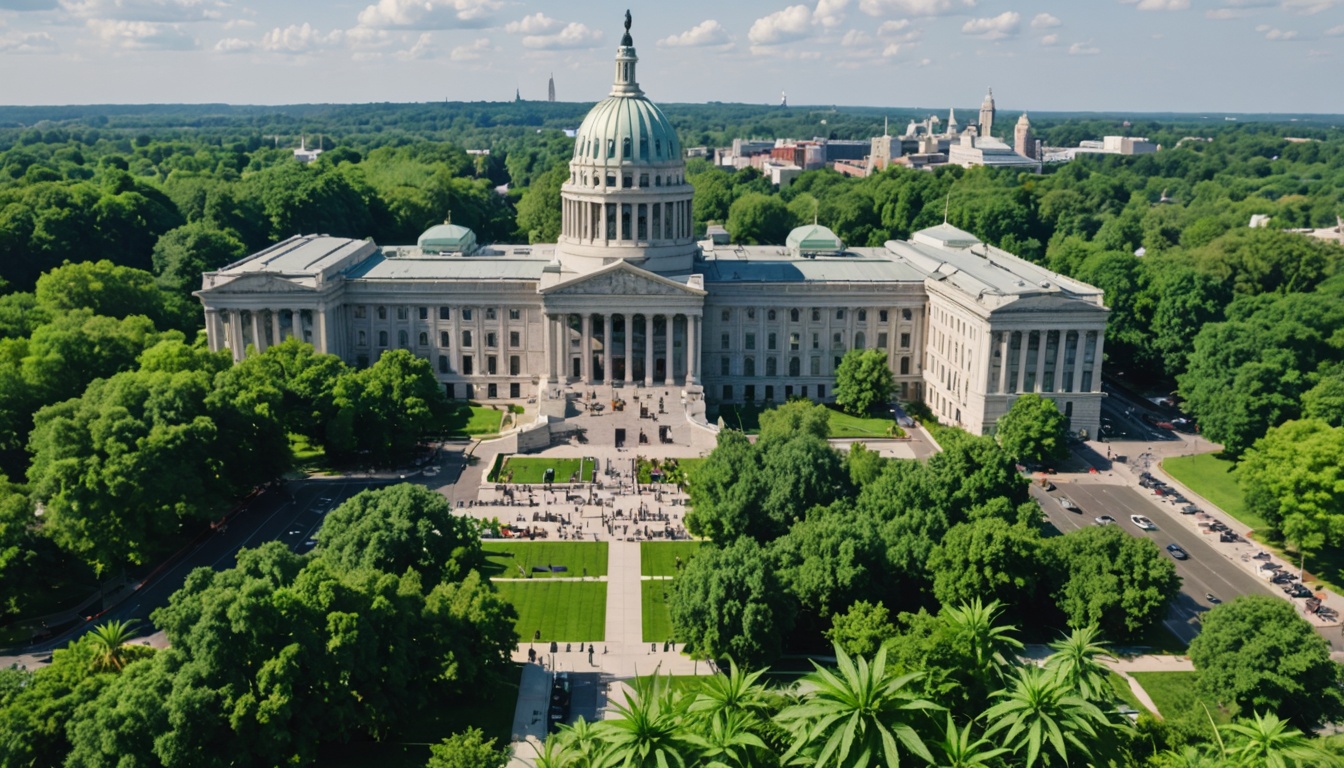Pennsylvania Lawmakers and Activists Agree on Legalizing Marijuana, but Differ on Business Model
In the midst of a budget crisis, Pennsylvania lawmakers are considering legalizing recreational marijuana, a move that could generate significant revenue for the state. However, the path to legalization is not without its challenges, as lawmakers and activists disagree on the best business model for the industry.
Three sets of lawmakers, including members of both parties, have proposed legislation to legalize recreational marijuana in Pennsylvania. The proposals come as lawmakers push to deliver a state budget by the end of the month, and the commonwealth faces a deficit unless services are cut or new revenue is found.
Senate Majority Leader Joe Pittman (R-Indiana) has said it’s unlikely legal cannabis will emerge as part of a final budget deal. However, some lawmakers believe legalizing marijuana is a fiscal and moral necessity, and could generate billions in revenue for the state.
One of the key debates surrounding legalization is the business model. Some lawmakers and activists argue that a state store model, where the state owns and operates the dispensaries, would be the best way to ensure that small businesses and entrepreneurs have a chance to participate in the industry. Others argue that a private store model, where private companies own and operate the dispensaries, would be more effective in generating revenue and creating jobs.
Rep. Emily Kinkead (D-Allegheny), the Democratic sponsor of a bipartisan House bill, said that creating thousands of jobs, generating billions in revenue, and reinvesting in communities are key goals of the legislation. However, Rep. Amen Brown (D-Philadelphia), who announced plans to introduce an identical bill in the House, acknowledged that there are shortcomings in the measure’s approach to social equity for would-be business owners.
The proposal sets aside 60 equity licenses for people from areas most impacted by prohibition, but application fees would be waived only for these businesses, and they would have to prove they have an option to buy or lease the real estate where they plan to operate. This approach has been criticized by some as being too restrictive and limiting the opportunities for small businesses and entrepreneurs.
Another proposal, introduced by Sens. Dan Laughlin (R-Erie) and Sharif Street (D-Philadelphia), sets aside 15 dedicated business licenses in the first year for businesses owned by Pennsylvanians from disproportionately impacted areas. However, the proposal requires small businesses to pay a $50,000 non-refundable fee to apply for a business license, which has been criticized as being too high a barrier for many cannabusiness.












